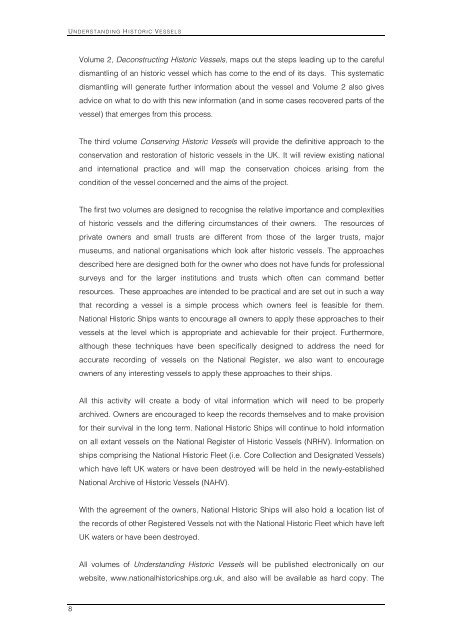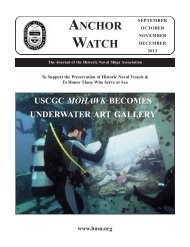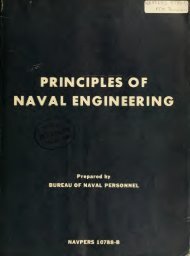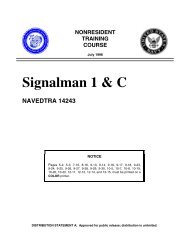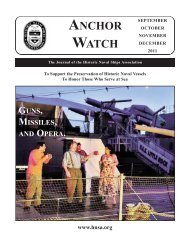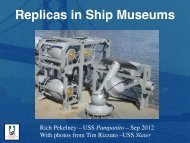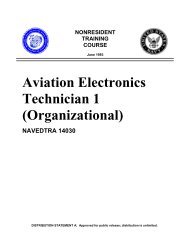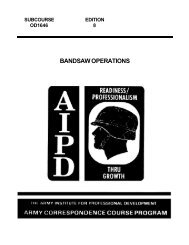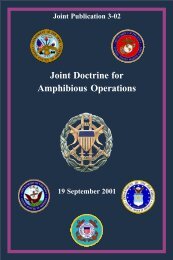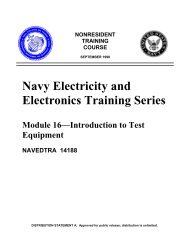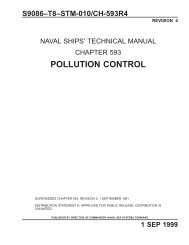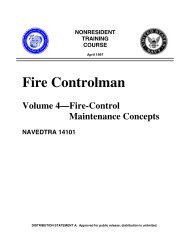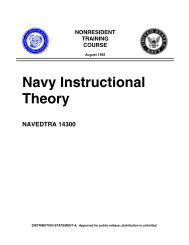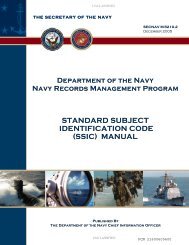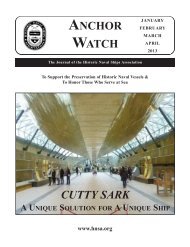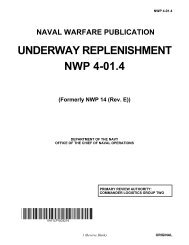Recording Historic Vessels - Historic Naval Ships Association
Recording Historic Vessels - Historic Naval Ships Association
Recording Historic Vessels - Historic Naval Ships Association
- No tags were found...
Create successful ePaper yourself
Turn your PDF publications into a flip-book with our unique Google optimized e-Paper software.
U NDERSTANDING H ISTORIC V ESSELSVolume 2, Deconstructing <strong>Historic</strong> <strong>Vessels</strong>, maps out the steps leading up to the carefuldismantling of an historic vessel which has come to the end of its days. This systematicdismantling will generate further information about the vessel and Volume 2 also givesadvice on what to do with this new information (and in some cases recovered parts of thevessel) that emerges from this process.The third volume Conserving <strong>Historic</strong> <strong>Vessels</strong> will provide the definitive approach to theconservation and restoration of historic vessels in the UK. It will review existing nationaland international practice and will map the conservation choices arising from thecondition of the vessel concerned and the aims of the project.The first two volumes are designed to recognise the relative importance and complexitiesof historic vessels and the differing circumstances of their owners. The resources ofprivate owners and small trusts are different from those of the larger trusts, majormuseums, and national organisations which look after historic vessels. The approachesdescribed here are designed both for the owner who does not have funds for professionalsurveys and for the larger institutions and trusts which often can command betterresources. These approaches are intended to be practical and are set out in such a waythat recording a vessel is a simple process which owners feel is feasible for them.National <strong>Historic</strong> <strong>Ships</strong> wants to encourage all owners to apply these approaches to theirvessels at the level which is appropriate and achievable for their project. Furthermore,although these techniques have been specifically designed to address the need foraccurate recording of vessels on the National Register, we also want to encourageowners of any interesting vessels to apply these approaches to their ships.All this activity will create a body of vital information which will need to be properlyarchived. Owners are encouraged to keep the records themselves and to make provisionfor their survival in the long term. National <strong>Historic</strong> <strong>Ships</strong> will continue to hold informationon all extant vessels on the National Register of <strong>Historic</strong> <strong>Vessels</strong> (NRHV). Information onships comprising the National <strong>Historic</strong> Fleet (i.e. Core Collection and Designated <strong>Vessels</strong>)which have left UK waters or have been destroyed will be held in the newly-establishedNational Archive of <strong>Historic</strong> <strong>Vessels</strong> (NAHV).With the agreement of the owners, National <strong>Historic</strong> <strong>Ships</strong> will also hold a location list ofthe records of other Registered <strong>Vessels</strong> not with the National <strong>Historic</strong> Fleet which have leftUK waters or have been destroyed.All volumes of Understanding <strong>Historic</strong> <strong>Vessels</strong> will be published electronically on ourwebsite, www.nationalhistoricships.org.uk, and also will be available as hard copy. The8


